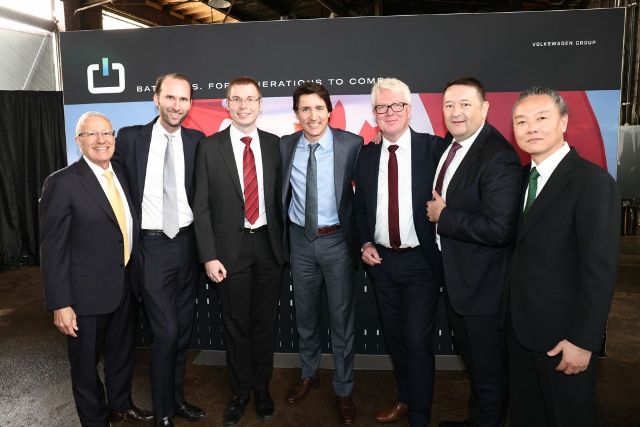Volkswagen and Canada have pledged to invest more than C$20 billion ($14.8 billion) to build an EV battery plant in St. Thomas, Ontario, marking the biggest single investment ever in Canada’s electric-vehicle (EV) supply chain.
Volkswagen, Europe’s largest automaker, said it is planning to spend up to C$7 billion on the plant, which is expected to become its largest and generate up to 3,000 jobs.
The Canadian federal government will provide up to C$13.2 billion in manufacturing tax credits through 2032, along with a C$700 million grant, matching the $35 per kWh in production subsidies offered by the U.S. Inflation Reduction Act (IRA).
Ontario’s provincial government will also provide C$500 million in direct investment and allocate additional funds to upgrade local infrastructure.
The plant will cover an area of 210 football fields and have the potential to produce up to 90 gigawatt hours of battery capacity, equivalent to one million electric vehicles per year. Groundbreaking is planned for 2024 and production is projected to begin by 2027, the carmaker said.
The project is expected to have a positive impact on the Canadian economy, with Prime Minister Justin Trudeau stating that it will be worth over C$200 billion in the coming decades.
“The factory will have six production blocks with the potential of up to 90 gigawatt hours… enough for a million electric vehicles a year,” said Frank Blome, CEO of Volkswagen’s battery unit, PowerCo SE. “The cell factory will span an area of 210 football fields.”
Volkswagen joins a Stellantis and LG Energy Solutions joint venture in building a battery gigafactory in Canada, as European carmakers seek to benefit from a U.S. climate law that requires 50 percent of EV battery components be made in North America for vehicles to qualify for generous U.S consumer tax credits.

